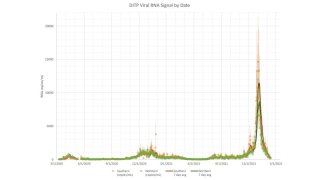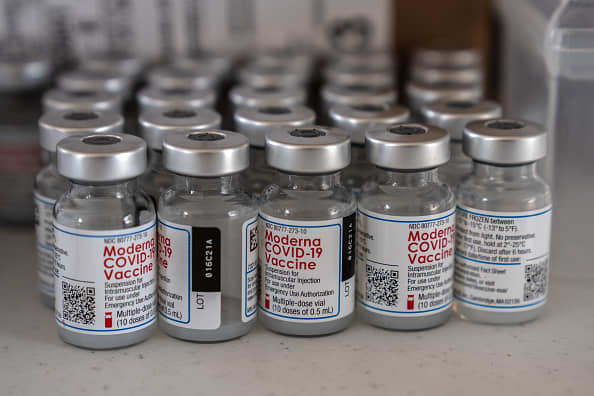
The latest COVID wastewater data shows levels in the Boston area at the range levels they were before the omicron surge started in December.
New data unveiled this week showed the levels back down to where they were in early December, before cases started to spike dramatically. This comes as states, cities and towns weigh what types of COVID-19 restrictions to keep in place in the face of the dropping metrics and what a "new normal" may look like.
WATCH ANYTIME FOR FREE
>Stream NBC10 Boston news for free, 24/7, wherever you are. |
The Massachusetts Water Resources Authority's tracking system, run by Cambridge-based Biobot, works by analyzing bits of genetic material in the Boston area's sewers to indicate how much of the virus is circulating in the community.
As of Monday, COVID levels were averaging under 1,000 RNA copies of COVID per milliliter, down from around 2,000 reported on Jan. 20 and from a peak near 10,000 in early January.
Get updates on what's happening in Boston to your inbox. Sign up for our >News Headlines newsletter.
COVID-19 cases and hospitalizations have been decreasing in Massachusetts for several weeks.
There were 2,499 new COVID cases reported Friday, and the state's seven-day average testing positivity and hospitalizations continue to trend down.
The seven-day average of positive tests was at 3.74% on Friday. The most recent high hit just over 23% on Jan. 5.
Proponents of wastewater COVID detection have argued that it helps give a fuller sense of the virus' spread in a community than state data, which doesn't include at-home rapid tests or people with COVID who don't take tests at all.
The data for Boston is collected from the Massachusetts Water Resources Authority's Deer Island wastewater treatment plant and analyzed by Cambridge-based Biobot Analytics three to seven times a week.
Forty-three communities from eastern Massachusetts have their water treated at the plant, including Boston, Cambridge, Framingham and Quincy. The data cannot be linked to specific cities, towns or neighborhoods.



